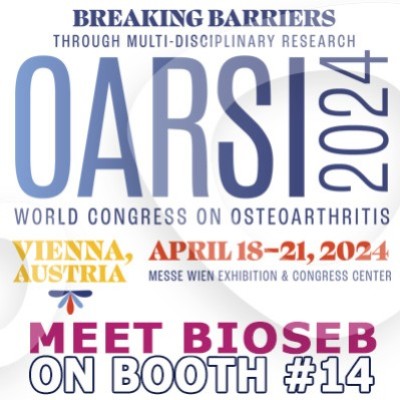Authors
MK Kaneva, MM Muley, E Krustev et al
Lab
The London School of Medicine, Queen Mary University of London, London, UK
Journal
FASEB Journal
Abstract
While new treatments have been developed to control joint disease in rheumatoid arthritis, they are partially effective and do not promote structural repair of cartilage. Following an initial identification of alpha-1-Antitrypsin (AAT) during the resolution phase of acute inflammation, we report here the properties of this protein in the context of cartilage protection, joint inflammation, and associated pain behavior. Intra-articular and systemic administration of AAT reversed joint inflammation, nociception, and cartilage degradation in the KBxN serum and neutrophil elastase models of arthritis. Ex vivo analyses of arthritic joints revealed that AAT promoted transcription of col2a1, acan, and sox9 and downregulated mmp13 and adamts5 gene expression. In vitro studies using human chondrocytes revealed that SERPINA1 transfection and rAAT protein promoted chondrogenic differentiation through activa tion of PKA-dependent CREB signaling and inhibition of Wnt/beta-catenin pathways. Thus, AAT is endowed with anti-inflammatory, analgesic, and chondroprotective properties that are partially inter-related. We propose that AAT could be developed for new therapeutic strategies to reduce arthritic pain and repair damaged cartilage.
BIOSEB Instruments Used:
Dynamic Weight Bearing 2.0 (BIO-DWB-DUAL)

 Douleur - Allodynie/Hyperalgésie Thermique
Douleur - Allodynie/Hyperalgésie Thermique Douleur - Spontanée - Déficit de Posture
Douleur - Spontanée - Déficit de Posture Douleur - Allodynie/Hyperalgésie Mécanique
Douleur - Allodynie/Hyperalgésie Mécanique Apprentissage/Mémoire - Attention - Addiction
Apprentissage/Mémoire - Attention - Addiction Physiologie & Recherche Respiratoire
Physiologie & Recherche Respiratoire
 Douleur
Douleur Métabolisme
Métabolisme Système moteur
Système moteur Neurodégénérescence
Neurodégénérescence Thématiques transversales
Thématiques transversales Système musculaire
Système musculaire Functions de motricité générale
Functions de motricité générale Troubles de l'humeur
Troubles de l'humeur Autres pathologies
Autres pathologies Articulations
Articulations Système Nerveux Central (SNC)
Système Nerveux Central (SNC)  Système sensoriel
Système sensoriel Bioseb on booth #14 at OARSI 2024 in Vienna
Bioseb on booth #14 at OARSI 2024 in Vienna 